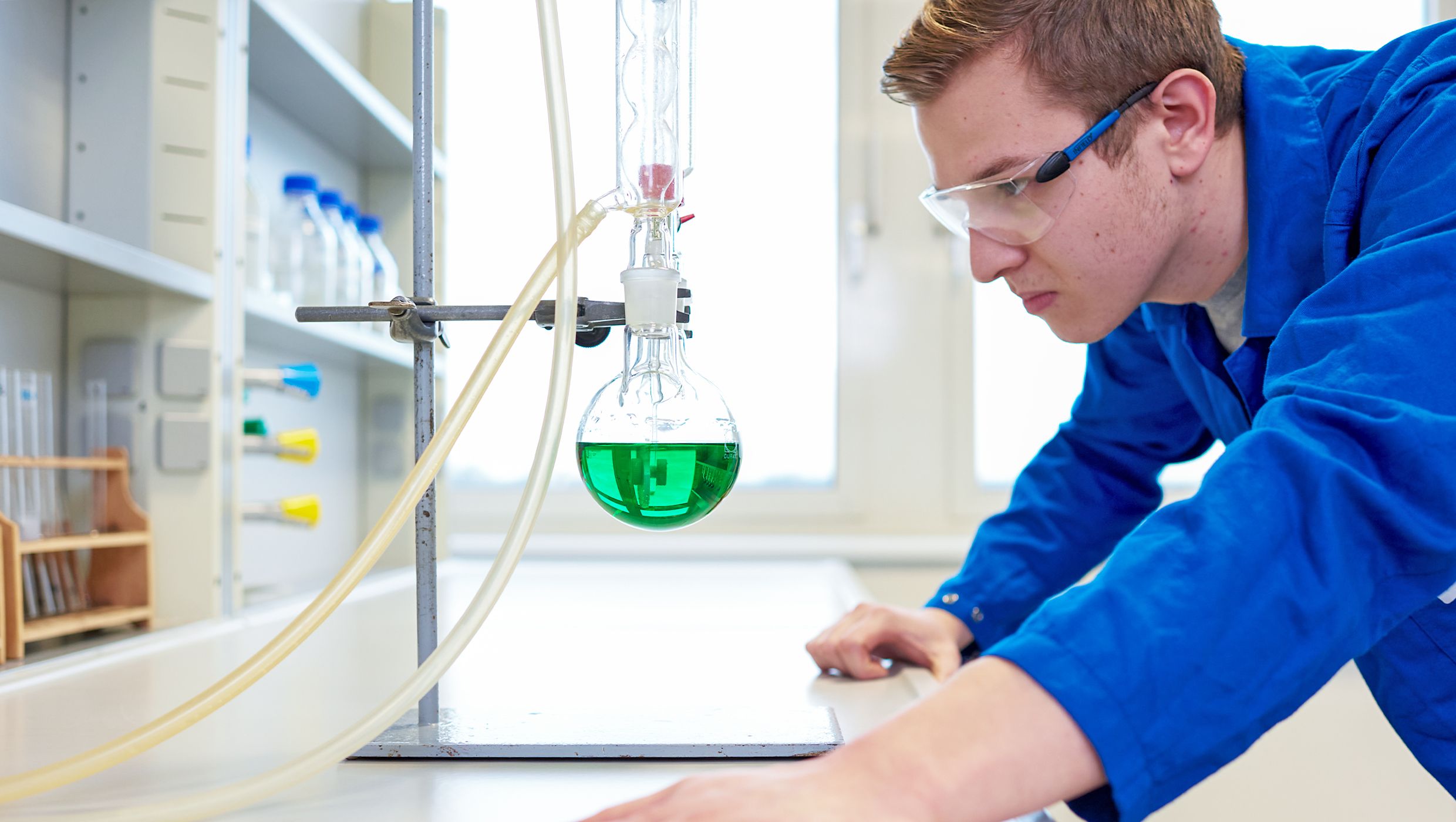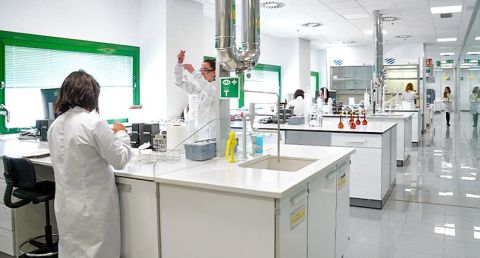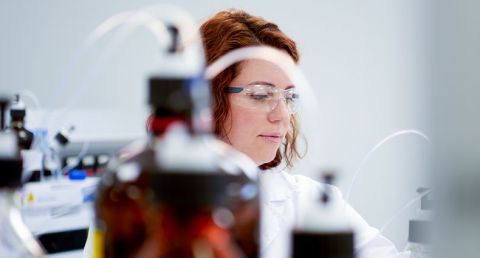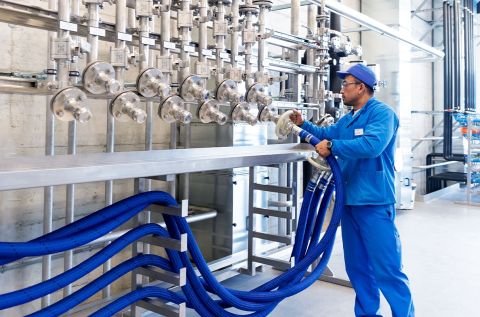Environment
As a chemical-pharmaceutical manufacturer, we are aware of our responsibility to make our processes as resource efficient and climate neutral as possible, and fully support our clients to achieve their ambitious sustainability targets.
Carbon footprint
De-fossilization is a big challenge for the manufacturing industry, especially for the chemical/pharmaceutical sector. Pharmaceutical manufacturing requires significant energy and resources, which in turn leads to CO2 emissions. Siegfried’s emissions fall into three scopes:
- Scope 1: Direct emissions from our operations, based on fossil fuels
- Scope 2: Indirect emissions from our energy purchases, such as electricity and steam
- Scope 3: Other indirect emissions from our value chain, including raw materials from suppliers
In the first step, we focused our reduction efforts on scope 1 and 2 emissions: We aim for a 50% reduction in CO2 emissions (in CO2 equivalents, normalized to sales) by 2030. We report our progress via CDP and other leading platforms and are on track to validate our climate targets through SBTI by 2024. Since we have now established our full Scope 3 value chain footprint, we plan to extend our efforts to scope 3 emissions in the future. We are also planning long-term measures to meet and validate our Net Zero Target, which means a net balance of zero greenhouse gases emitted by operations and greenhouse gases removed from the atmosphere by company actions.
Energy
Manufacturing active pharmaceutical ingredients and intermediates involves many production steps and temperatures ranging from very low to very high, leading to considerable energy use. At Siegfried, we are on the right track when it comes to more sustainable energy practices. We have secured >70% sustainable electricity in our operations, and we have defined a -10% global energy reduction target for natural gas and electricity (-10% by 2023, compared to the 2021 baseline).
By optimizing our production processes, recycling systems and increasing our equipment’s energy efficiency we aim at a further reduction of our carbon footprint and energy consumption. Our sites have dedicated action plans in place, which are reviewed by Operations as well as by the Corporate Sustainability Board.
Waste
Manufacturing active pharmaceutical ingredients generates large amounts of waste containing by-products that can be harmful to humans and the environment. At Siegfried, we are committed to the 12 green chemistry principles and have launched a variety of projects to sustainably reduce the amount of waste. In 2023, we launched a comprehensive green chemistry guidance for our R&D chemists, which shows promising initial results.
We also engage closely with our clients and suppliers to identify opportunities for waste reduction and greener chemical processes.
Water
Pharmaceutical production consumes significant amounts of water, from using it as a starting material and cleaning agent, to employing it as a cooling agent and heat dissipator. At Siegfried, we are committed to actively reducing our water consumption, especially in water stressed areas, with positive progress shown since 2017. We also aim to reduce the amount of wastewater created and avoid the discharge of pollutants into water bodies.
Siegfried follows specified environmental standards such as quality checking uncontaminated cooling wastewater before feeding it into the local watercourses and ensuring polluted wastewater is treated in treatment plants prior to being discharged into local waters.



